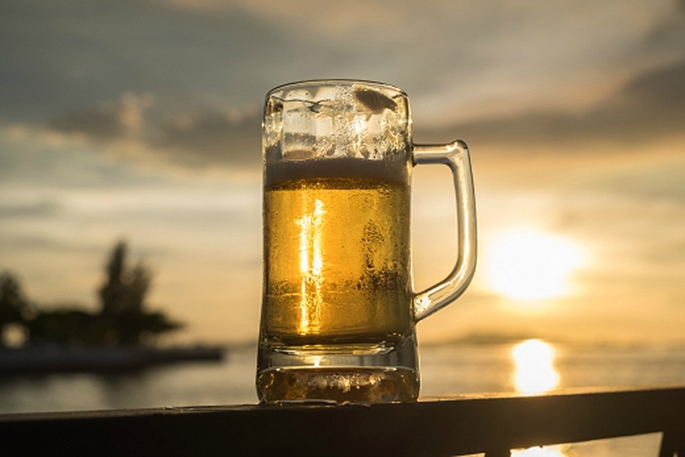A Provisional Eastern Bay Local Alcohol Policy, if adopted, sets maximum alcohol trading hours for bars at 1am and prevents supermarkets and dairies from selling beer and wine before 9am.
After consultation with the community on a draft policy, a joint hearings and deliberations panel that included elected members from Kawerau, Whakatane and Opotiki district councils has recommended changes to its original draft policy.
The previous draft included 9am to midnight trading hours for bars and clubs and 8am to 10pm for supermarkets, an hour earlier than other off-licences. After deliberating on community feedback, the maximum trading hours have been changed to 9am to 1am for bars, 9am to midnight for clubs, and 9am to 10pm for supermarkets and other off-licences.
On July 6, Whakatane District Council voted to adopt the policy. Kawerau District Council will decide on Wednesday (July 19), followed by Opotiki District Council on August 1.
Councillor Gavin Dennis who represented Whakatane district on the hearing committee explained at the July 6 meeting why the changes had been made.
He said two of the submissions that affected him most were from Mem Jenner from Murupara who works with alcohol harm minimisation agencies and Community Action on Youth and Drugs co-ordinator Tikiahi Brown-Davis from Whakaatu Whanaunga Trust in Opotiki.
“Their issue was that parents were dropping their kids off at school while some people were walking home with crates of beer under their arm, drinking on their way home. Kids were passing these people drinking and it was a really bad example.
"The one that really got me, was that for some people it was a choice between whether the household bought beer or breakfast. Because of those early opening hours, when people went into the supermarkets, the beer was readily available. This guy works in the community so I believe what he says.
“We have a responsibility for the safety and the wellbeing of our community and we’re going to give the kids the chance to get breakfast instead of beer.”
The committee also heard from owners of hotels and pubs who said though the existing regulations allowed them to trade between 9am and 2am, they rarely did.
“We asked some of the pubs what time they actually closed. I think one pub in Opotiki stays open until 1am, the rest closed about 11pm to 11.30pm because everyone went home,” Mr Dennis said.
“Publicans stated that they wanted to stay open later [than midnight] so it gives the young people somewhere to go rather than travelling over to Tauranga. Because of that, the hearing committee agreed to allow pubs to close at 1am, even though the majority closed a lot earlier.”
Off-licence liquor outlets felt it was unfair that supermarkets were allowed to sell beer earlier than they could.
"One of [the supermarket representatives’] main statements was that they had to make allowances for shift workers coming home to be able to buy alcohol,” Mr Dennis said.
“As a shiftworker of 40 years, I found that really strange. I don’t know many people that bought alcohol on the way home from a shift.”
He said that there had also been “subtle hints” from one supermarket representative that there had been a court case last year against one council that tried to restrict their opening hours and that the supermarket had won.
“I took a bit of offence that they actually mentioned that.”
Councillor John Pullar was also on the committee and said he had voted against the policy. He felt that for people who had serious problems with alcohol the policy would not make a lot a difference.
“We’re only fiddling and faffing around with it really. We’ve got to change people’s behaviour. If we wanted to get real about it we’d have to ban alcohol altogether.”
Mayor Victor Luca said that while he supported the policy, he agreed with Mr Pullar’s sentiments.
"We need to look to the root causes. What causes people to drink. Education is critical. This is tinkering around the edges a bit."
Councillor Nandor Tanczos pointed out a recently published study (University of Otago’s NZ Drugs Harm Ranking Study) showing that alcohol is the single most damaging recreational drug available.
“Having said that, I would never ban it, because we’ve seen that prohibition doesn’t work.”
He felt the biggest step New Zealand could take to minimise alcohol harm would be to ban alcohol advertising, something that was not within the council’s power.
Councillor Julie Jukes said though she supported the policy she didn’t agree with the assumption that people buying alcohol before 8am had drinking problems.
“I generally do my grocery shopping before I go to work at 9am so I might put a bottle of wine in my supermarket trolley, which I will now no longer be able to do."
Councillors Tu O’Brien, Ngapera Rangiaho and John Pullar voted against adopting the policy but were outvoted by the remaining councillors and mayor.
Public Interest Journalism funded through NZ On Air.




1 comment
Hmmm
Posted on 19-07-2023 13:27 | By Let's get real
I see very little benefits for the community in having alcohol available for sale in supermarkets at all. It just normalises the purchase of beers and wine for children from before school age onwards. If I could introduce legislation, I would limit alcohol, tobacco products and vapes to registered and licensed premises with a total ban on sales to under 18s and no visible advertising outside of the premises. Keep all of the addictive substances under one roof and harder for youngsters to access. I can't think of a single supermarket in Tauranga that doesn't have a liquor store (or two) that is more than a few hundred metres away. Nothing wrong with a drink or two, but when it's so readily available, next to the bread and milk, it's easy to get trapped into a regular routine.
Leave a Comment
You must be logged in to make a comment.